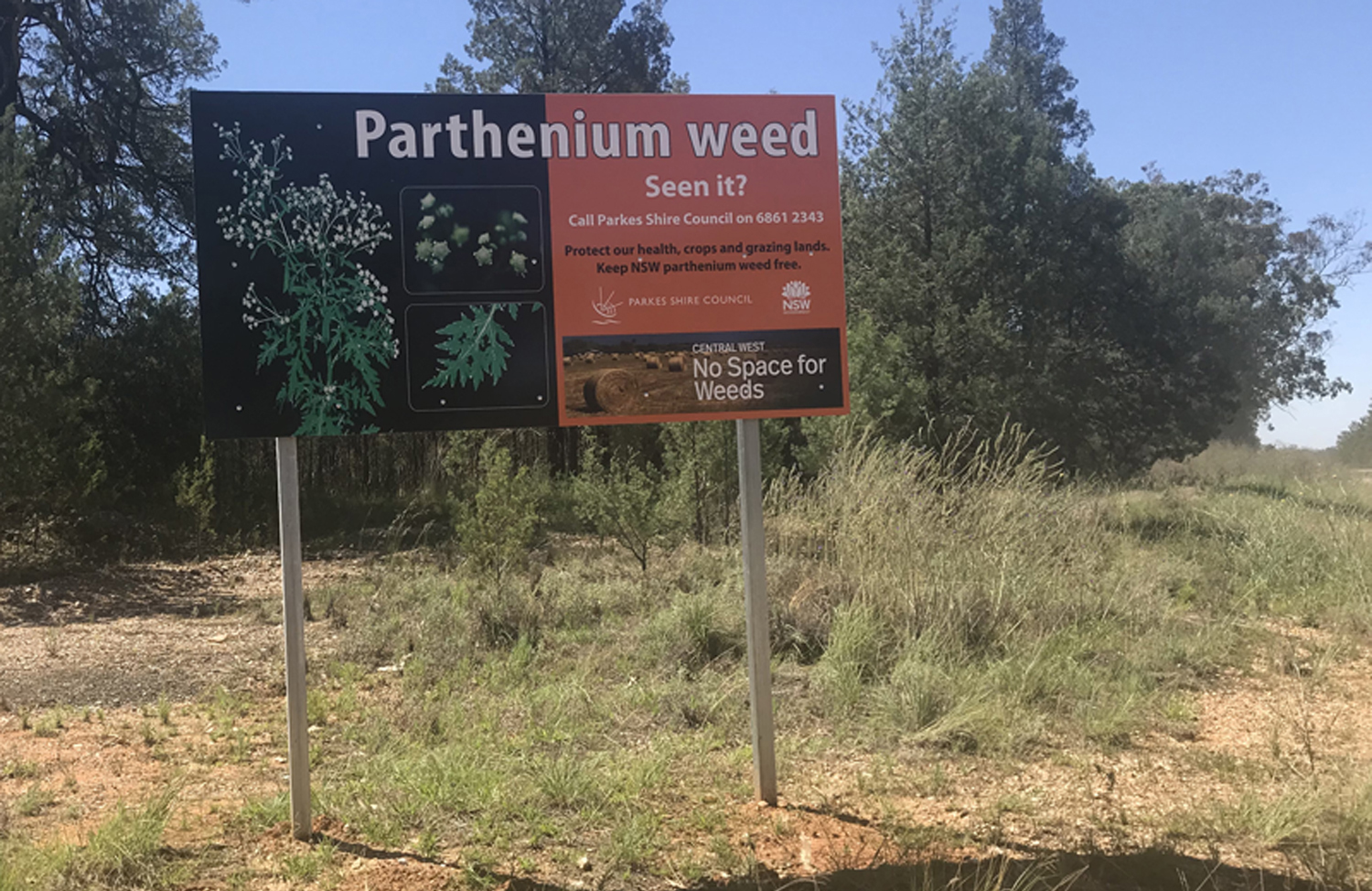
Parkes parthenium patrol
9 Mar 2021

A major reconnaissance operation, involving more than 30 biosecurity, natural resources, logistics and support specialists from across NSW, will survey two parthenium infestation sites near Parkes as teams search for any signs of the invasive weed this March 16 and 17.
NSW Department of Primary Industries (DPI) State Priority Weeds coordinator, Phil Blackmore, said known infestation sites are monitored for up to five years to ensure the seed bank is exhausted and parthenium weed is eradicated.
“Working with Parkes Shire Council weeds biosecurity officer, Kane Davison and Central West Local Land Services (LLS) regional weeds coordinator, Jodie Lawler, we’re leading 13 local councils, the Forestry Corporation of NSW, DPI and LLS in surveillance and management activities,” Mr Blackmore said.
“Central Tablelands LLS and Lachlan, Cowra, Weddin, Mid-Western, Dubbo, Castlereagh-Macquarie, Orange, Hilltops, Queanbeyan-Palerang, Snowy Mountains, Yass and Port Stephens councils will take part in the two-day operation, alongside the organising bodies.
“Close to 1000 hectares will be inspected in the area where more than 500 mature parthenium plants were removed and treated last year.
“Parkes Shire Council weeds biosecurity officers and a local agronomist reported the infestations in May 2020, and we have linked the incursion to contaminated harvesting and planting machinery from Queensland.”
Mr Blackmore congratulated the community for keeping local councils and NSW DPI informed and asked residents and landholders to continue to be vigilant.
“Please contact the NSW DPI Biosecurity Helpline, 1800 680 244 or your local council for plant identification and assistance if you see any plants you suspect may be parthenium weed.
Parthenium weed, Parthenium hysterophorus, spreads rapidly, is dangerous to grazing animals and reduces crop and land values.
Contact with the plant or pollen can cause serious allergic reactions in people.
Statewide surveillance of known high-risk areas and eradication of parthenium weed, is continuing to keep NSW free of the weed.
NSW DPI’s successful parthenium eradication program has benefited the state since 1982. More information about parthenium weed and how to identify the plant at different growth stages is available from NSW DPI.
Hi-res images available from bernadette.york@dpi.nsw.gov.au
Media contact: Bernadette York 0427 773 785

